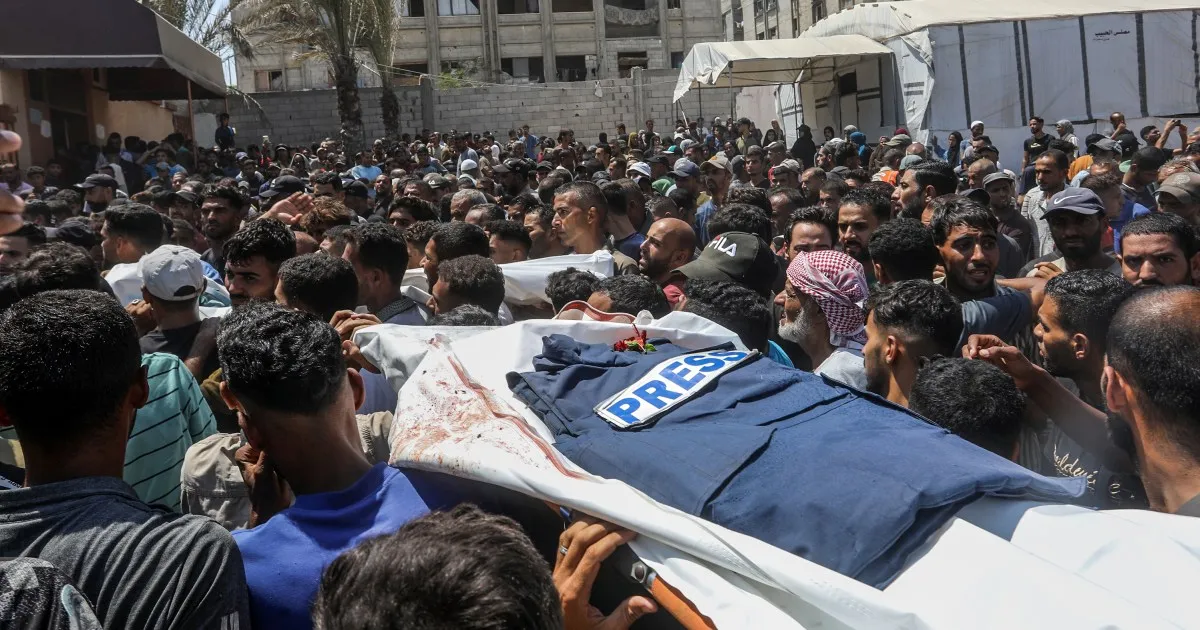An Israeli airstrike on the Nasser Hospital in southern Gaza has sparked global condemnation after at least 20 people were killed, including five journalists working for international news organizations.
The Attack
Witnesses described the strike as a “double hit,” with one explosion followed by another as medical staff, civilians, and journalists rushed to help the wounded. Among the victims were reporters affiliated with Reuters, the Associated Press, and Al Jazeera. Several others, including photographers and freelance correspondents, were injured while documenting the aftermath of the initial blast.
The loss of freelance journalist Mariam Abu Dagga, known for her powerful coverage of Gaza’s humanitarian crisis, drew particular grief. She was celebrated for documenting the struggles of children in war zones and was regarded as one of Gaza’s most courageous visual reporters.
International Condemnation
The attack triggered an outpouring of criticism from leaders, humanitarian organizations, and press freedom advocates:
- The Committee to Protect Journalists described the strike as an unlawful act against the free press.
- The Palestinian Journalists Syndicate accused Israel of deliberately targeting media workers to silence reporting from Gaza.
- French President Emmanuel Macron called the incident “intolerable” and demanded the protection of reporters in all circumstances.
- Qatar’s Foreign Ministry urged the international community to act swiftly to ensure accountability and protect journalists, doctors, and aid workers.
- The United Nations stressed that civilians, journalists, and medical personnel must never be targeted, calling for an impartial investigation.
- Humanitarian groups, including Médecins Sans Frontières, denounced the attack as a deliberate effort to suppress coverage of the humanitarian crisis.
A Deadly Pattern
This strike adds to what observers say is the deadliest conflict for journalists in decades. Since the war escalated in late 2023, hundreds of media workers have been killed in Gaza, making it one of the most dangerous places in the world to be a reporter.
Journalists have repeatedly warned that they lack adequate protection and are often forced to work without basic safety equipment, despite being clearly identifiable as press.
Calls for Accountability
Global press associations and media watchdogs are now demanding clarity from Israel and pressing world leaders to take a stand in defense of journalists. The deaths of Abu Dagga and her colleagues have renewed calls for war crimes investigations and stronger international protections for media workers in conflict zones.
A Critical Moment
The attack on Nasser Hospital underscores the extreme risks faced by journalists in war-torn regions. With voices on the ground being silenced at an alarming rate, international organizations warn that the world is losing vital firsthand accounts of humanitarian suffering in Gaza.
For many, the strike represents not just another tragedy, but a turning point—raising urgent questions about accountability, press freedom, and the protection of civilians in times of war.
















Leave a Reply